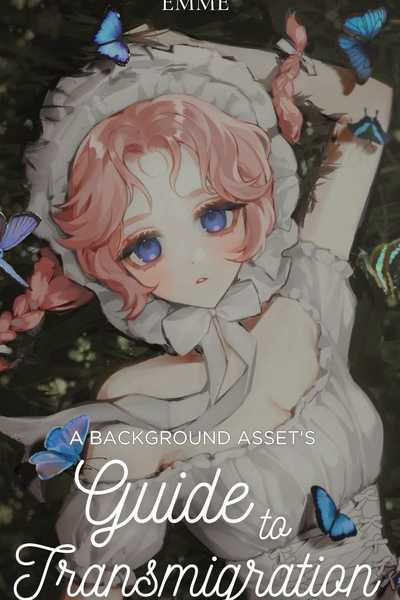Butler James informed me that Rutherford had two Central Bank branches, with the nearest one located not far from the manor. He kindly offered to arrange a carriage for me by noon, and I accepted the offer before returning to the balcony.
As I gazed out from the balcony, my eyes fell upon the kettle of tea. Time must have passed, and the tea was likely cold by now. Thinking that it would be a waste to pour it away, I decided to drink the whole thing. Steam rose as the liquid flowed into the cup, and I was pleasantly surprised to discover that the tea retained its warmth. It seemed that Leo had already taken care of it. Even for a servant of a noble, he was quite thoughtful and competent.
With nothing much to do until noon, I bided time by reading the newspaper from cover to cover and finishing the tea. As boredom settled in, I called out to the system in my mind.
'System, what happens if I fail this mission?' I inquired.
'You won't be awarded any points,' the familiar yet slightly unnerving voice replied.
'And I won't be sent back to the underworld?'
'Your contract will be automatically terminated if you reach negative 7000 points, and only then will you be sent back to the underworld," the system explained.
'Negative points?' I asked, taken aback.
'Yes.'
I probed further, 'When does one get negative points?'
'If you fail your missions seven times consecutively, you'll get negative 700 points,' the system answered. 'From there, you'll receive -700 points each time you fail a mission. Additionally, if you have loaned points from the system to purchase tools for missions and your current point balance is less than the loaned amount, your point balance will be shown as negative. Lastly, you'll receive negative points if you break the world you were sent to complete the mission.'
'Break the world? What does that mean?'
'It is of no consequence. Agent, you do not have to concern yourself with that. Such cases are rare and infrequent,' the system replied dismissively.
'Alright,' I acquiesced. 'You can disengage.'
***
After lunch, I found a finely adorned carriage waiting for me in the courtyard. Deciding to bring Gemma along as my companion, we set off on a 15-minute ride to reach the Central Bank. The bank was an imposing, grandiose structure, its pristine white façade standing out remarkably amidst the hustle and bustle of the town. Stepping inside, I was greeted by a sight of rows and rows of impeccably dressed employees, diligently sifting through documents or attending to the needs of customers.
Approaching the nearest desk, I met the gaze of a courteous man. With a welcoming smile, he inquired, "How may I assist you today, miss?"
"Do the Ashbournes have an account here? I want to withdraw some money," I inquired directly, wasting no time in getting to the point.
"The Ashbournes? As in the noble family?" the man at the desk asked.
"Yes."
"Please wait a moment as I check," he replied, swiftly retrieving some papers from one of the drawers. His fingers deftly sifted through the documents, and after a brief examination, he spoke again.
"They do have an account here, but... only a direct family member can withdraw money." He studied me for a while before continuing, "I assume you're somehow related to them, so I can direct you to the vault if you show me a proof of identification."
Without hesitation, I removed the ring from the index finger of my left hand, revealing the precious family heirloom which carried the family crest. The ring, exquisitely crafted from solid silver, bore an oval-shaped signet at its center, meticulously engraved with majestic oak tree, encircled by graceful swirling patterns. Above the seal, two lustrous emeralds sparkled. Along the band, the family motto, 'Radices Magnificae, Altitudines Duraturae,' was beautifully inscribed.
These rings bearing family crests were unique to each noble family, exclusively owned by direct and immediate family members. Each family only had a set number of these. These rings held immense value and were often used as proof of identification or authorization among nobles.
The man carefully examined the ring under a magnifying glass. "The ring is authentic," he declared. I shall lead you to the vaults. You may take the necessary amount directly."
"Thank you," I said. I then requested Gemma to wait outside as I followed the man to what appeared to be the basement area.
"The vaults of nobles are kept in the basement for maximum security," he explained, leading the way down the stairs. As we descended, we saw two guards stationed on either side of a metal door. The bank employee showed his brass nameplate attached to a lanyard around his neck to one of the guards. After a careful scrutiny of the identification, the guard nodded at his companion, who proceeded to unlock the heavy door with a key.
Inside, I was met with an array of individual vaults, each crafted from thick metals. The employee directed me to the specific vault designated for the Ashbourne family. He explained, "Since you have come here, I assume you are aware of the key needed to unlock the vault. The vaults of nobles each require a unique key for access, and even we employees are not privy to this information."
"A unique key?" I asked, feeling a sense of concern creeping in.
"Based on your reaction, it seems you may not know it. In that case, I'm afraid we must return," he replied.
My heart raced. Money was absolutely necessary for the success of my plans. If I failed to access the funds here, I had no one else to turn to in this distant town, far from the family residence in the capital.
"Give me a moment," I requested, trying to gather my thoughts.
The countess seemed to know that I was up to something in Rutherford and that I would be here for an extended period of time. Being the cunning woman she was, it was quite possible she had foreseen the dilemma I was currently facing. If she had intended to assist me, she might have left a clue.
A clue...
Recalling the moment in the countess's room, I remembered the note she had given me, containing a series of numbers and the words she had said – "I'll let you guess what it is."
"I know the key," I told the bank employee, pushing aside my initial uncertainty. "I had momentarily forgotten, but it has come back to me."
"That's good to hear," he replied with a smile.
Approaching the Ashbourne family's large vault, I leaned down and dialed the numbers 20-23-26-17.
A subtle click resonated, and the vault door opened before me. I was amazed to see hundreds of gold and silver coins, along with pouches containing precious jewels.
Carefully, I selected 15 gold coins and 20 silver ones and secured them in a small pouch I had brought with me. Concealing the pouch within the sleeve of my dress, I turned to the employee and announced, "I am finished here."
The man nodded, and we made our way back upstairs. Upon returning to the porch where I had left Gemma, I found her observing a small commotion unfolding not far from the bank building.
A burly man was tightly holding the hand of a young boy, who seemed to be around 10 years old, clutching a loaf of bread. The man appeared angry, and his grip on the boy's hand was firm. A small crowd had gathered, observing the spectacle.
I turned to Gemma.
"It seems the boy stole the bread from the man's shop," she stated in a monotone voice, her expression betraying no emotions. "Now they want him to pay for his crime."
I observed the boy, his tear-stained face pleading for understanding as he attempted to explain himself. However, the adults around him seemed unwilling to listen. Truly a heart-wrenching sight.
"What do you want me to do, Gemma?" I asked. "If you wish, I can intervene and help the boy. It's up to you."
Gemma's eyes drooped, and a moment of silence passed before she finally spoke. "I don't believe he's at fault," she responded. "That doesn't look like the face of someone who stole something. Even if he did, he must have been in dire circumstances."
"Is that so? Then, should I help him or not?"
"Please... please do," Gemma pleaded, lowering her head.
Regardless of Gemma's answer, I had already made up my mind to assist the boy. As I approached the scene, a vivid memory from my previous life resurfaced—a newspaper article that had shaken the collective conscience of society. It told the tragic tale of a man living in dire poverty, killed by an angry mob for stealing a mere handful of rice to feed his starving family.
At the time, I had wondered how such cruelty could exist in the world. Yet, now it became apparent that, whether in a fictional world or reality, such heartless individuals could be found everywhere.











Comments (0)
See all